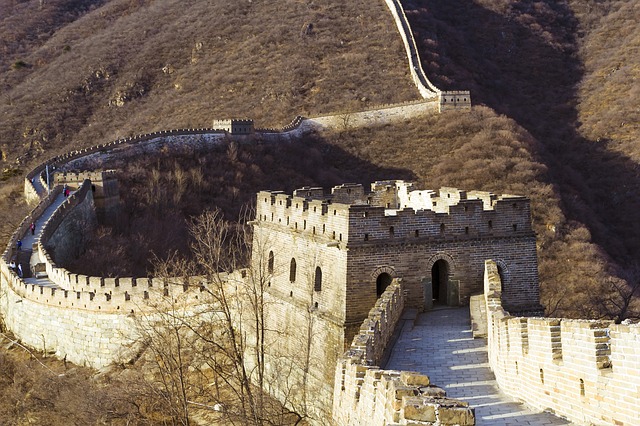 With the death of God in the West, we have struggled to find a replacement on which to base morality and civilisation.
With the death of God in the West, we have struggled to find a replacement on which to base morality and civilisation.
In recent times, Neo-Reactionaries such as Nick Land have identified the fact that Liberalism not only killed off God, but led logically and inexorably to the horrors of 20th Century Communism, and the idiocy of 21st Century identity politics. Now, without the sense of common identity provided by Christianity, what was once Christendom is in danger of being annexed into the Dar al Islam.
Here at The XYZ, both Moses Apostaticus and Adam Piggott have proposed returning to our Christian roots in order to restore the West.
The biggest impediment to saving Western civilisation is that to discuss this existential crisis openly leads to the charge of racism by the forces intent on achieving that destruction, namely the regressive left and Islam. Aside from trusting one’s own judgement, a good reality check can come from hearing similar conclusions reached by minds from other cultures. Eh?nonymous recently noted this, in an article about a Buddhist monk who is shocked by the direction in which the West is headed:
“It doesn’t mean that I’m down and in agreement with all of their ways of looking at the world, the way they go about their lives, or their ideology. But it does assure me that what we’re all seeing and interpreting in exactly the same way isn’t just paranoia, wishful thinking, or confirmation bias, but cold hard evidence.”
In a similar vein, Why China is winning the game of civilisation by Subetei Gur at Return of Kings (the entire article is well worth the read) identifies signs of decline in the West, and ascendency in China:
“In a world of many industrialized nations cucking themselves out of existence, Chinese culture stands tall. No, this is not a praise of Chinese culture. This is a simple acknowledgement of the fact that Chinese culture has stood for 5000 continuous years to this day, and is still steaming along with seeming impunity. It assimilated foreign conquerors, conquered lesser peoples, formed tributary states that adopted their script, and ushered in scientific achievements that changed the world.
“This culture saw its birth in roughly the same era as many of the ancient cultures we know of today, such as the Sumerians, the Greeks, the Persians, the Romans, and the Egyptians. But while the founding origins of those cultures are today politically insignificant nations that have succumbed to Islamic barbarism or have become r-selective debt traps or war-torn shit holes, China stands strong.”
I am always a little wary of the “China is going to rule the world” thesis, because, well, just don’t ever write off the West. But he succinctly identifies China’s strengths, of which we patriots in the West are currently very jealous:
“China is not without its problems (as any country), but it stands strong, unified, and in recognition of its ancient greatness. It does not cower in the face of multiculturalism or political correctness. It does not run from the challenge of sovereignty. More importantly, even beyond the geographical confines of China itself, Chinese culture remains vibrant across the globe.”
Europa is a house divided; we view our former greatness as original sin for which we must forever atone; multiculturalism is killing European culture and political correctness prevents us from saving it. Even when we do protect our borders, we let in millions of migrants, and our lack of cultural confidence is making stronger, more vibrant cultures seem more appealing to Westerner and foreigner alike.
It is here that Gur differs from many of us at The XYZ, and identifies a feature unique to China and the source of its longevity:
“The reason for the resilience of Chinese culture to corruption via technology, ideology, or demographics lies in the very fact that the foundation of Chinese culture is the family, rather than a particular religion. While Christian Europe achieved immense levels of K-selective cultural traits such as family values, monogamy, and a strong patriarchy, these were never organic. In fact, prior to the adoption of Abrahamic religions in Europe en mass, indigenous European cultures, while still fairly K-selective, never developed the memetic habituations that match the high level of civilization achieved under Christianity.
“However, this clever use of an external religion to stabilize indigenous societies is fundamentally unstable precisely because it is mythology. The inevitable advent of scientific thought dooms any religion to eventual irrelevance, as the divine force in the ether becomes less and less relatable to the common man.
“It is no wonder, then, that Europeans seem indifferent towards hostile Islamic migrants. No European deep down wishes to see Islamic dominance or convert to Islam, but when the key pillar of European culture is now relegated to the realms of abstraction and comedy, what is there left to defend? Why remain monogamous, why adhere to rationality and reason, why bar women from their own terrible decisions, why maintain division of labor, why uphold a patriarchal society, and why defend your borders when the one cultural incentive for you to do so has crumpled beneath your feet?”
 In the West, killing God killed the family. In China, family is God, and you cannot kill it.
In the West, killing God killed the family. In China, family is God, and you cannot kill it.
“Chinese culture, on the other hand, took a very different approach. My hypothesis is that because East Asians are even more K-selected than Europeans, there were sufficient indigenous selective pressures to develop a culture that entirely transcends the need for divine punishment in order to encourage society to behave in the most optimal manner for the benefit of long-term survival. Thus an organic family oriented society emerged, and as an added result, eliminated the opportunity for dogmatic religions to ever become popular.”
One may posit that perhaps the Chinese got lucky in one respect. With an officially Marxist system of government already in place, installed by force, there was no need for Marxists to use Cultural Marxism to completely undermine everything that made China what it was in order to bring about economic Marxism. Admittedly, there was a bit of this nonsense during the Cultural Revolution, but as Gur points out:
“A culture based on the pillar of family unity is very difficult to corrupt. It provides nothing mystical for technological advancement to debunk, and while political ideologies may seem grand and their respective despots may seem larger than life with their cult of personalities, their relevance to the common man does not dispel the importance of a family unit.
“Indeed, it is no wonder why the preposterous Western invention of Marxism ultimately lost in its war against Chinese culture, with the latter coming out on top, guns blazing and trousers down, defecating on the charred corpse of leftist bullshit. Feminism is also unpopular in East Asian societies (unless they have been forcibly Westernized, and even then it is hardly the fashion of the day) because men, and especially fathers, are far less likely to cave to the irrational whims of women just to keep them happy for an instant at the cost of civilization.”
If white people should have any form of white guilt, it should be for the fact that Communism and its inevitable genocides spread to the world from white lands (irrespective of debate over the white origins of Communism). But although China copped the worst of these Communist genocides, the elevation of the family unit above all else in Chinese culture is, according to Gur, an effective inoculation against Communism’s civilisation-destroying effect.









